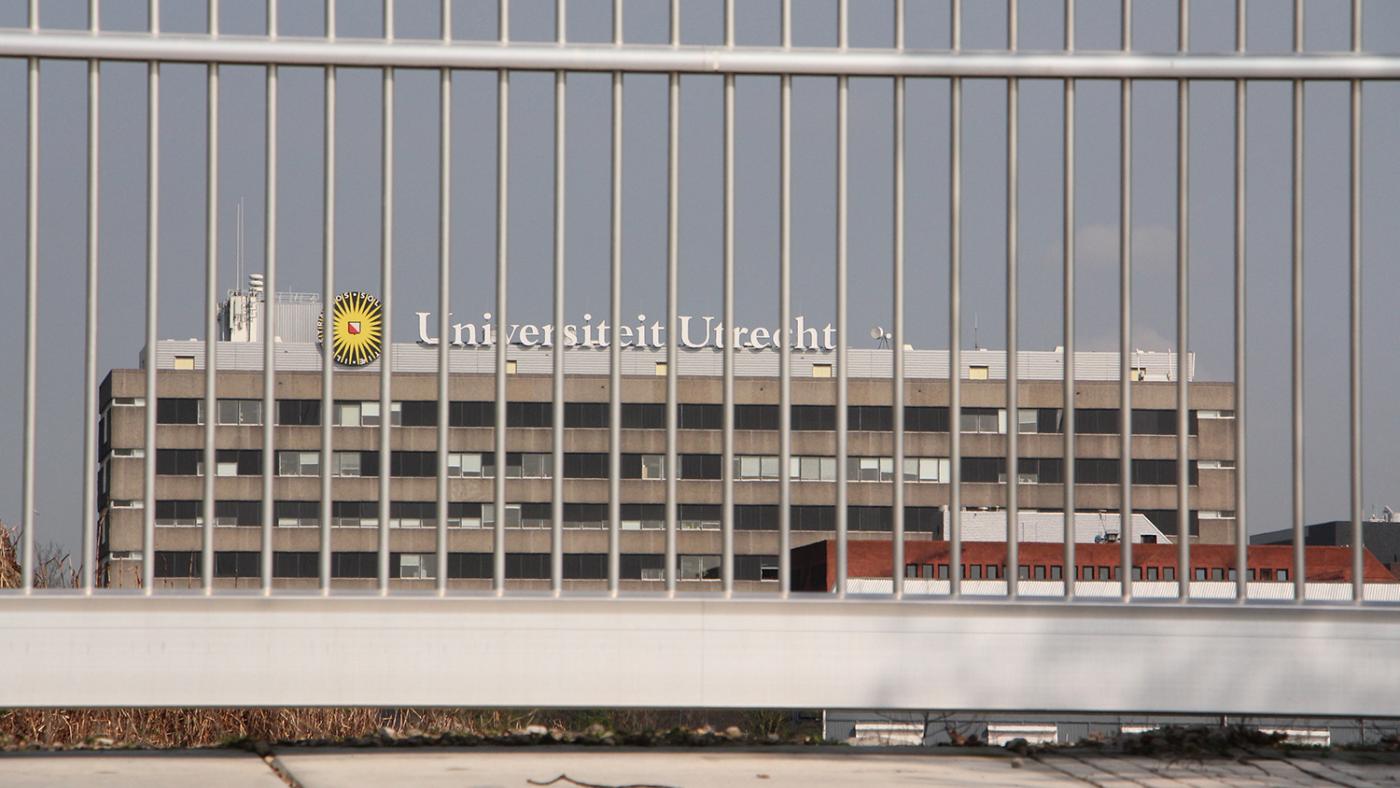New study offers hope for a better indoor climate in Buys Ballot building

The UU Faculty of Science expects employees to experience less physical discomfort once the corona crisis passes and employees return to the Buys Ballot building. The building is being investigated after after years of complaints from its users. Back in 2010, for example, around 70 percent of employees working in the building reported regularly suffering from fatigue, headaches, and dry eyes. Despite a series of investigations and measures, the situation did not improve.
In fact, three technicians of the IMAU (Institute for Marine and Atmospheric Research) experienced such severe symptoms, including eye and respiratory infections, that they left the UU in 2019. That was reason enough for the faculty to start a new investigation.
Stale air
The main conclusion is that the stale air and related health issues seem to be caused by problems with air circulation. “We’ve observed unwanted air flows, which means that the air that’s meant to be transported outside possibly flows back into the building through cracks and other air leaks,” says an email sent to employees working there
It also appears that the temperature regulation in the building runs far from optimally. Installations in the ceiling aren’t strong enough to cool the spaces when the weather’s hot and the radiators can’t get up to the right temperature fast enough when the weather’s cold. Moreover, the temperature of the fresh air blown into the building on its sunny southern side is the same as that at the northern side, which could explain employees’ complaints about rooms being too hot or too cold.
Technical adjustments to the building have been suggested following the investigation. A number of them have already been carried out in the past few months. The cleaning process will also be investigated, as the research bureau noted that some spaces and drains were very dusty and dirty.
No immediate explanation
Joris Baijens, Health, Safety and Environment Officer at the Faculty of Science, understands that some employees are surprised about the outcome of the investigation. How is it possible that these issues were only uncovered now, after ten years? “Yes, perhaps that should’ve been done earlier, but this is the first time we’ve done an integral analysis. Previously, we focused on finding the causes of separate issues. Now, we’ve got the whole picture. That’s the added value of this investigation.”
The air circulation was also faulty in IMAU’s laboratories on the sixth floor, where multiple employees developed severe symptoms. The air from the laboratories can spread to the hallways, which is problematic, especially when employees are working with chemical or contaminated materials – although the latter does not happen at the IMAU.
Baijens emphasises that the new findings still cannot explain why the biggest problems are experienced at the IMAU on the sixth floor. “But the abnormal air circulation could have played a role in these issues, of course.”
Regardless, IMAU employee Carina van der Veen, who has been experiencing numerous symptoms for years, is cautiously optimistic. “I’ve read a few things in the report that we’ve been mentioning as possible causes for years. So far, we were always told that that couldn’t be the case. I’m just hoping that the adjustments will lead to actual improvements.”
Sick reports
The results of a questionnaire conducted before the new investigation highlight just how poorly the employees rate the indoor climate at the Buys Ballot building. The building is rated a 4.9 for indoor climate, whereas, on average, Dutch office buildings are rated a 6 out of 10, according to the research report.
The questionnaire was sent to 800 employees and 10 study associations. A total of 281 people responded. The response percentage of 34 percent paints a reasonably reliable picture of the situation, according to the research bureau.
The outcomes show that nearly half of respondents think that the indoor climate negatively affect their work. A total of 17 employees have called in sick in the previous year as a result of issues related to the indoor climate.
In comparison to employees at an average Dutch office building, those working at the Buys Ballot Building report a relatively high number of physical complaints. Respondents are regularly tired (51 percent), or have trouble concentrating (58 percent). Headaches, irritated eyes, nasal congestion and dry throat are also common.
Many BBG residents think the dry, stuffy, stale air in the building is the cause of the health issues, the research report states. Half of the respondents complain about the air.
Furthermore, employees at the sunny side of the building indicate that the temperature is often too high in the offices. Employees at the northern side, however, report the opposite: their offices are often too cold in the winter, autumn, and spring.
Lower expectations
Although Baijens thinks that the technical adjustments will definitely make working in the BBG more pleasant, he also wants to lower people’s expectations. “Employees will have to understand that, in a building this big, the thermostat simply doesn’t work as fast as it does at home. We’ll try to communicate that, and we’ll have a new manual as well.”
In addition, Baijens says it’s possible that rooms are being used in ways the technical installations aren’t meant for. He mentions the study association rooms on the second floor, on the southern side of the building, which become very uncomfortable when crowded. “I’m not sure if we’ll be able to solve that completely. We may need to talk to them about moving to other rooms.”
Employees working at the BBG will receive further explanation about the findings and the next steps in an online session on November 23. Baijens would have liked to carry out a new questionnaire in the spring to see whether improvements are noticeable after the numerous adjustments. But, given the corona crisis, with most employees working from home, that will probably be difficult.